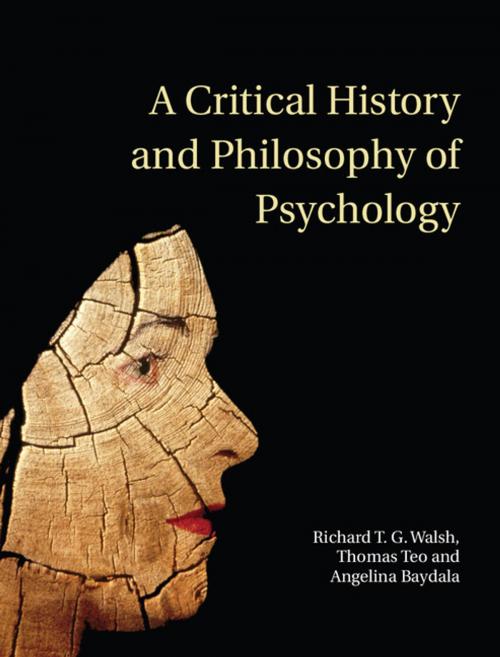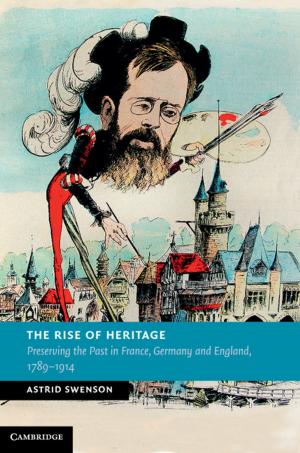A Critical History and Philosophy of Psychology
Diversity of Context, Thought, and Practice
Nonfiction, Health & Well Being, Psychology, History, Science & Nature, Science| Author: | Thomas Teo, Angelina Baydala, Richard T. G. Walsh | ISBN: | 9781107779297 |
| Publisher: | Cambridge University Press | Publication: | March 20, 2014 |
| Imprint: | Cambridge University Press | Language: | English |
| Author: | Thomas Teo, Angelina Baydala, Richard T. G. Walsh |
| ISBN: | 9781107779297 |
| Publisher: | Cambridge University Press |
| Publication: | March 20, 2014 |
| Imprint: | Cambridge University Press |
| Language: | English |
In line with the British Psychological Society's recent recommendations for teaching the history of psychology, this comprehensive undergraduate textbook emphasizes the philosophical, cultural and social elements that influenced psychology's development. The authors demonstrate that psychology is both a human (i.e. psychoanalytic or phenomenological) and natural (i.e. cognitive) science, exploring broad social-historical and philosophical themes such as the role of diverse cultures and women in psychology, and the complex relationship between objectivity and subjectivity in the development of psychological knowledge. The result is a fresh and balanced perspective on what has traditionally been viewed as the collected achievements of a few 'great men'. With a variety of learning features, including case studies, study questions, thought experiments and a glossary, this new textbook encourages students to critically engage with chapter material and analyze themes and topics within a social, historical and philosophical framework.
In line with the British Psychological Society's recent recommendations for teaching the history of psychology, this comprehensive undergraduate textbook emphasizes the philosophical, cultural and social elements that influenced psychology's development. The authors demonstrate that psychology is both a human (i.e. psychoanalytic or phenomenological) and natural (i.e. cognitive) science, exploring broad social-historical and philosophical themes such as the role of diverse cultures and women in psychology, and the complex relationship between objectivity and subjectivity in the development of psychological knowledge. The result is a fresh and balanced perspective on what has traditionally been viewed as the collected achievements of a few 'great men'. With a variety of learning features, including case studies, study questions, thought experiments and a glossary, this new textbook encourages students to critically engage with chapter material and analyze themes and topics within a social, historical and philosophical framework.















